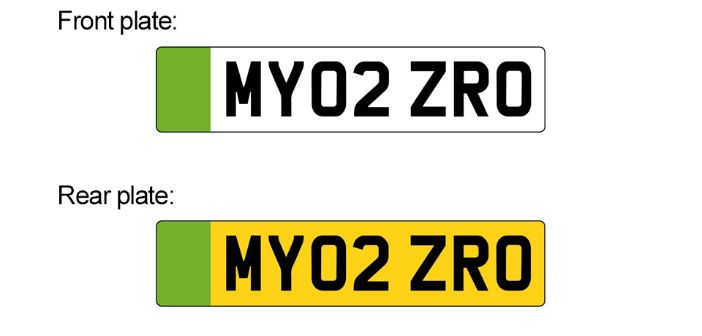Uptake of green license plates, introduced in the UK in December 2020 to designate zero-emission vehicles and enable local authorities to grant EV special rights, is lagging, according to a survey by New Scientist.
Since the plates became available nine months ago, no councils have introduced incentives in England, the survey said. The magazine had asked around the 342 local authorities, with those responding to the enquiry saying they hadn’t implemented any incentives that used green number plates.
Several said they already had incentive schemes, such as free or discounted parking, for electric car drivers before the plates were introduced. In London, for example, zero-emission vehicles are exempt from the congestion charge. However, this is not checked with the license plate’s colour, but with the Driver and Vehicle Licensing Agency database – so all-electric vehicles are recorded, irrespective of whether they have regular or green license plates.
According to New Scientist, some councils said they were considering using the green license plates for future incentives. Jack Cousens, head of roads policy at the AA, confirmed this and told the publication that several councils were working on providing some benefits, adding that “we need more councils to step up to the plate and deliver them faster”. However, he agreed that green number plates would increase public interest in EVs.
A survey conducted by Nissan and YouGov last winter found that 32% of respondents were more likely to purchase an EV because of the new license plates. Opting for the green number plate is optional upon registering an EV.





